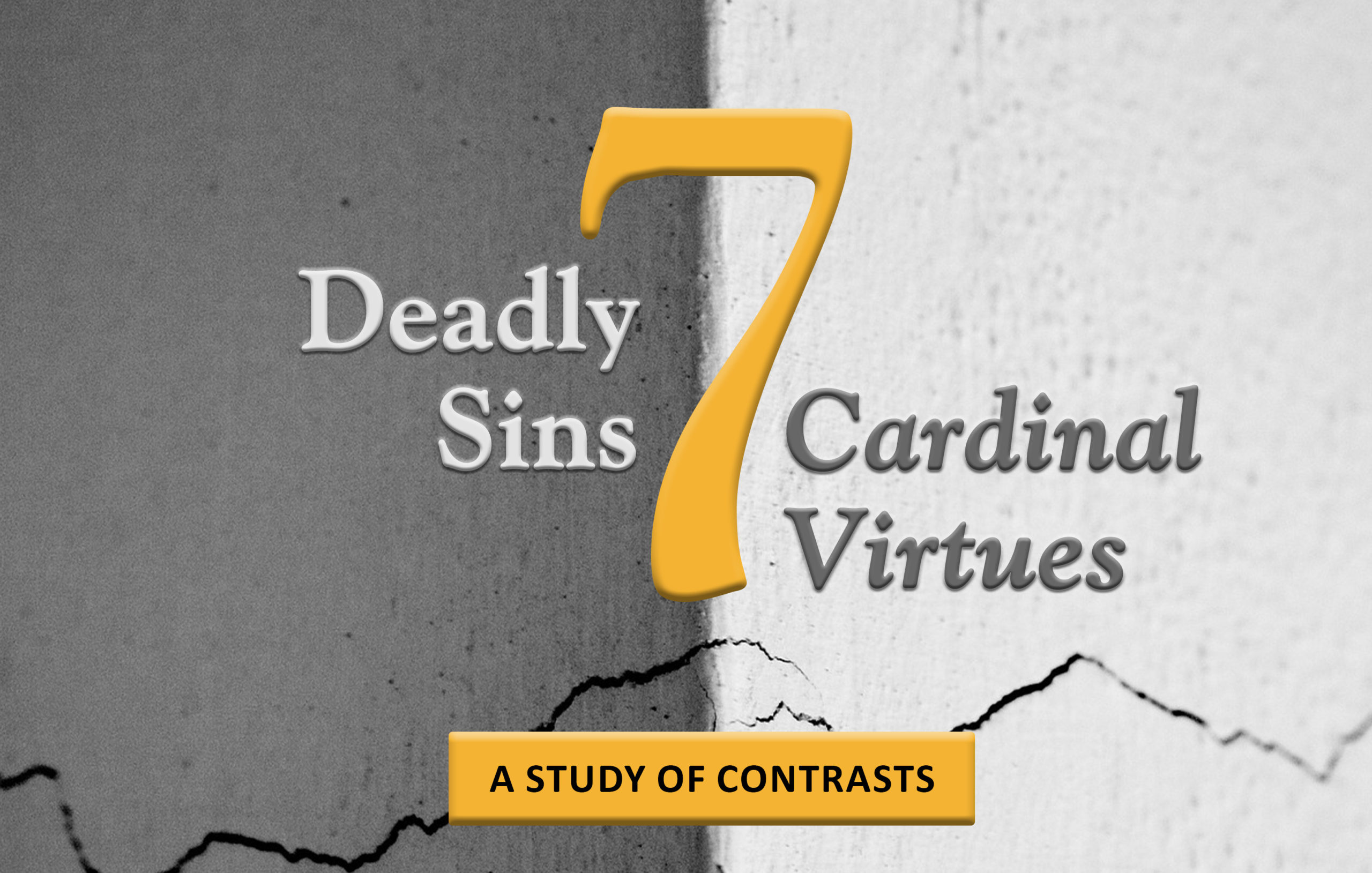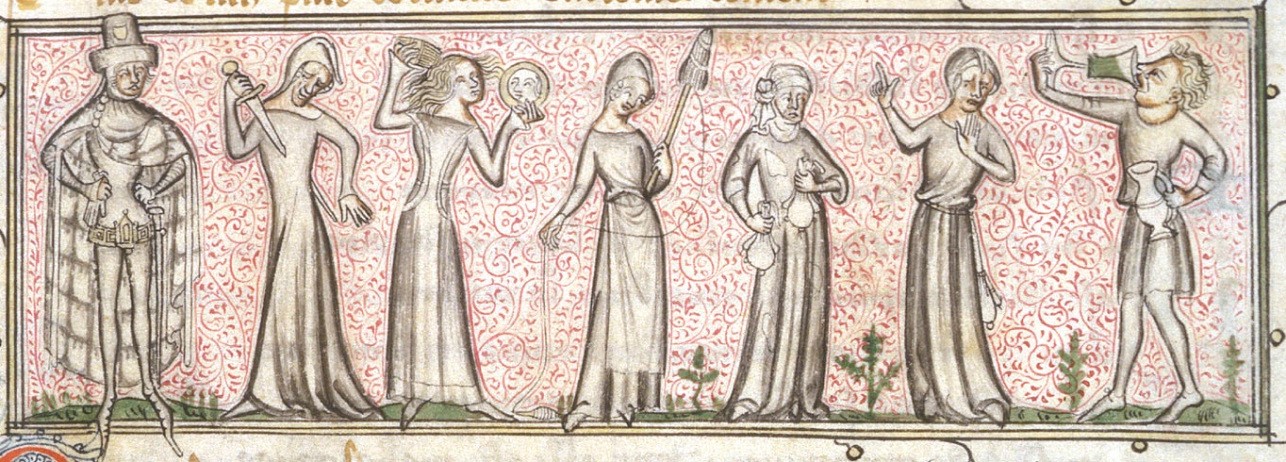What’s the reverse of the seven lethal sins? This exploration delves into the constructive virtues that counteract these destructive tendencies, revealing a path in the direction of a extra fulfilling life. Understanding these counterpoints permits for a deeper comprehension of human nature and the potential for private progress.
The seven lethal sins, typically mentioned in non secular and philosophical contexts, signify destructive behaviors that may hinder private and societal progress. Conversely, their opposites, the virtues, supply a framework for constructive motion and a extra moral lifestyle. This examination delves into every sin and its corresponding antidote, illuminating the complicated interaction between vice and advantage.
Inspecting the virtues that counterbalance the seven lethal sins is essential to understanding a balanced life. An important side of this exploration includes understanding the position of management, like the top of France, as depicted in a crossword puzzle resembling this head of france crossword. In the end, recognizing these constructive traits illuminates the trail to a life free from the destructive influences of the seven lethal sins.
The seven lethal sins, an idea deeply rooted in Christian theology, signify destructive traits that may result in religious and ethical decay. Understanding these vices is essential, however equally essential is recognizing the virtues that oppose them. This exploration delves into the constructive counterparts of pleasure, greed, lust, envy, gluttony, wrath, and sloth, offering a complete understanding of the trail to virtuous residing.
Understanding the Seven Lethal Sins
Earlier than analyzing their opposites, let’s briefly revisit the core tenets of every sin. Delight, for example, is an extreme perception in a single’s personal significance, typically resulting in vanity and contempt for others. Greed, however, is an insatiable want for materials wealth and possessions. Lust includes an uncontrolled yearning for bodily pleasure, typically disregarding ethical boundaries.
The other of the seven lethal sins typically boils all the way down to virtuous character traits, like charity and humility. Exploring these ideas can result in a deeper understanding of constructive human attributes. Curiously, some three-letter phrases that begin with ‘j’ – like justice, joy, and zeal – additionally replicate these constructive qualities. In the end, understanding the antithesis to the seven lethal sins requires a considerate exploration of virtuous actions and character traits.
Envy is the resentment and jealousy of one other’s success or possessions. Gluttony represents extreme indulgence in foods and drinks, typically to the detriment of 1’s well being and well-being. Wrath is uncontrolled anger and aggression, resulting in hurt and battle. Sloth, lastly, is an absence of effort or motivation, hindering private progress and religious progress.
The Virtues as Antitheses
The opposing virtues act as a counterbalance to those destructive traits, guiding people in the direction of a extra fulfilling and moral life. They don’t seem to be merely the absence of the sins, however lively selections and practices that foster constructive character traits.
Humility
The other of pleasure is humility, a recognition of 1’s limitations and a willingness to acknowledge the value of others. Humility fosters empathy and encourages respect for all people. It’s not about self-deprecation, however about understanding one’s place throughout the bigger group and accepting assist from others.
Generosity
Generosity stands in direct opposition to greed. It includes a willingness to share sources, time, and compassion with others, no matter their standing or circumstances. Generosity cultivates a way of group and promotes a spirit of cooperation.

Chastity
Chastity, the alternative of lust, includes controlling one’s needs and actions in a approach that promotes respect for oneself and others. It’s about recognizing the significance of affection and dedication, and interesting in relationships with integrity.
Gratitude
Gratitude is the alternative of envy. It includes appreciating the nice in a single’s life and acknowledging the blessings acquired, fostering contentment and stopping bitterness. Recognizing the worth of what we’ve promotes a constructive outlook and reduces the tendency to match ourselves to others.
Temperance
Temperance opposes gluttony, emphasizing moderation and steadiness in all features of life. It is about recognizing the significance of wholesome habits and stopping excesses that hurt each the physique and the spirit.
The other of the seven lethal sins is commonly framed as virtues, however a deeper dive reveals a extra nuanced idea. A key part of this antithesis is commonly tied to a 4 letter phrase beginning with “i” – integrity. In the end, striving for integrity embodies the core ideas that counterbalance the destructive tendencies. This deal with virtuous motion, then, turns into the true reverse of the seven lethal sins.
Endurance, What’s the reverse of the seven lethal sins
Endurance is the antithesis of wrath. It includes controlling one’s emotional responses and resolving conflicts with calmness and understanding. It fosters a way of peace and promotes constructive communication.
Diligence
Diligence counters sloth. It includes a dedication to effort and dedication, each in private {and professional} pursuits. Diligence encourages private progress and the success of potential.
Sensible Purposes
Growing these virtues shouldn’t be merely a theoretical train. They are often utilized in on a regular basis life to foster more healthy relationships, promote private progress, and contribute to a extra simply and compassionate world. [Image: Table comparing the seven deadly sins and their corresponding virtues]
Conclusion: What Is The Reverse Of The Seven Lethal Sins
The seven lethal sins and their corresponding virtues present a framework for self-reflection and private progress. By understanding these ideas, people can try to domesticate constructive character traits and stay extra fulfilling lives. [See also: How to Cultivate Virtues in Everyday Life]
This exploration has supplied a foundational understanding of the alternative of the seven lethal sins. Additional analysis and exploration into particular virtues and their purposes can deepen your understanding. Do you may have any questions or ideas on this matter? Share them within the feedback beneath!
The other of the seven lethal sins is commonly framed as advantage, however what is the precise antidote? Think about the qualities related to a constructive ethical compass. One highly effective idea is the 4 letter phrase ending in “b” – compassion. This idea, together with different virtues, highlights a path in the direction of a extra healthful life, which instantly opposes the destructive traits of the seven lethal sins.
Share this text on social media to assist others uncover the trail to virtuous residing!
In conclusion, understanding the opposites of the seven lethal sins gives a beneficial lens by which to look at human conduct and try for private enchancment. By recognizing the constructive counterparts to those destructive tendencies, we will domesticate a extra balanced and virtuous life. This exploration has illuminated the profound affect these contrasting forces have on our lives and the alternatives we make.

FAQs
What are some sensible methods to domesticate the alternative of sloth?
Understanding the antithesis of the seven lethal sins requires delving into constructive virtues. A key part of this exploration is recognizing the six-letter phrase starting with ‘b’ – typically thought-about the cornerstone of virtuous residing. This word represents a profound idea in moral philosophy, basically shaping the alternative of the seven lethal sins. In the end, figuring out the alternative of those sins includes cultivating a mess of constructive traits.
Cultivating the alternative of sloth includes proactive engagement with life. This may embody setting lifelike targets, embracing challenges, and prioritizing duties. Discovering enjoyment in day by day actions, even seemingly mundane ones, can even fight the sensation of laziness.
How can I virtually apply these ideas in my day by day life?
Making use of these ideas requires constant effort and self-reflection. Journaling about your actions and motivations, setting day by day intentions, and surrounding your self with supportive people can support within the course of. Repeatedly practising mindfulness and gratitude can even contribute to cultivating constructive qualities.
Are these opposites universally relevant, or are they culturally influenced?
Whereas the particular manifestations of those virtues may differ throughout cultures, the core ideas of opposing the seven lethal sins stay related. The pursuit of virtuous residing is a common human endeavor, although the expressions of these virtues may tackle culturally distinct kinds.




